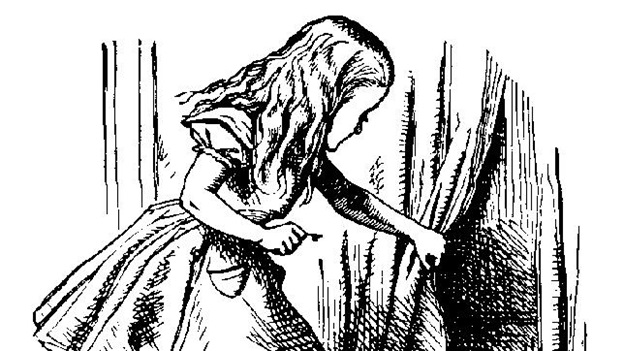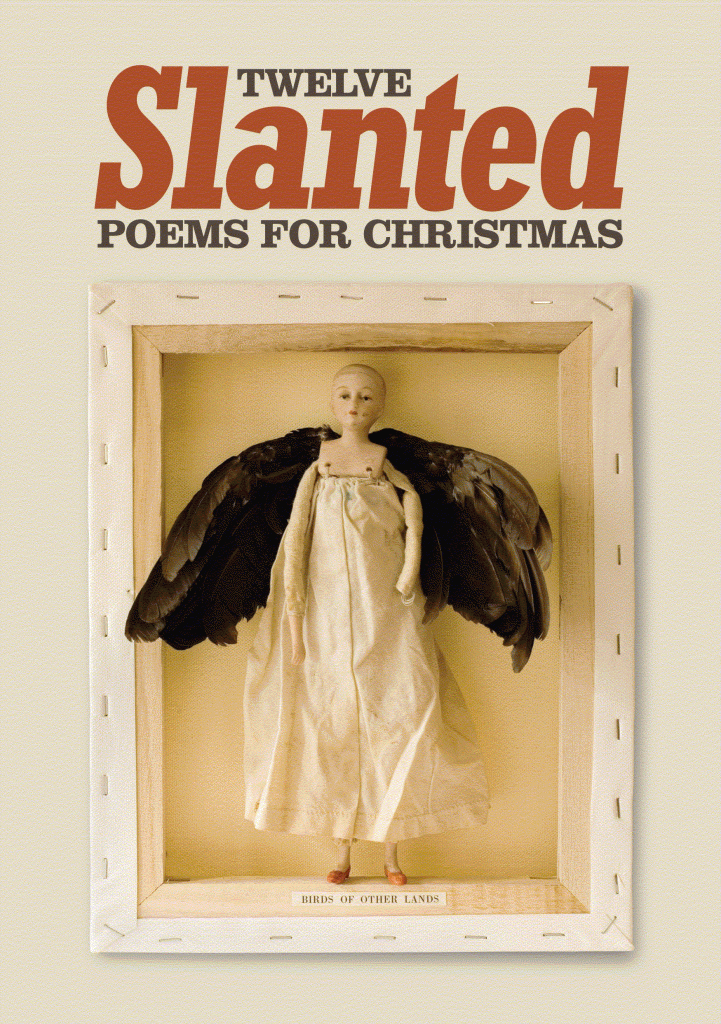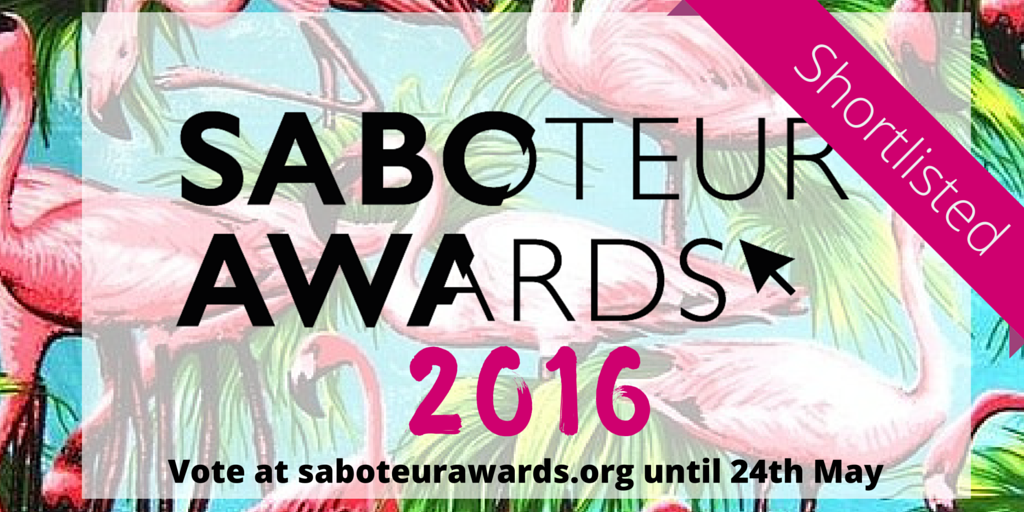Alice: Ekphrasis at the British Library
– Reviewed by Jenna Clake –
Alice is an anthology celebrating the 150th anniversary of the publication of Lewis Carroll’s Alice in Wonderland. Typically, one might expect ekphrasis to refer to an artwork, but intertextuality is the focus here; instead of reacting to an artwork, the poets were asked to write poems inspired by Alice in Wonderland.
As might be expected, the loss of innocence is a central theme in some of the poems. In Sharon Black’s ‘The Race’, The Pool of Tears is refigured: Alice is ‘soaked to the bone’ by her own tears, but her focus is elsewhere, on her mother:
Mother would have slapped me if
she’d seen the state; always primping me,
anxious to turn me out prettier than the next.
We see an adolescent disdain for the mother in this poem, as though Alice is trying to escape the rules and restrictions placed on her. She escapes these physically:
After the first lap I slipped off my shoes,
unbuttoned my dress, stripped
to vest and bloomers and raced ahead.
Alice’s actions are simultaneously mature and childlike: shedding her clothes suggests an abandonment of her childhood, but the way she races ‘ahead -/ the warm air summering my body… all of us/ flying in the same direction,’ suggests childlike abandon.
Anna Kisby’s ‘The Fallen Alices’ moves away from the world of the novel to a darker one, in which ‘we are hanging from bridges because the river listens to our petitions.’ The women in this poem are ‘disgraced, seduced, […] trafficked and raped.’ But, despite this enforced physical loss, the Alices assert that they ‘never grow up’; they order us to ‘dream’ of them, to remember them, and this is how they never age.
Luke Wright’s ‘Alice’ sees the protagonist as a mother with a young baby, waiting for her love to come home:
It seems he’s always later these days
he races off, he stays away,
it seems he’s always late
he’s always late,
he’s always late.
We initially see Alice as optimistic; she wishes to find ‘a sleepy cul-de-sac’ with her love, but we soon see her broken by the daily task of looking after the baby and waiting for her love to return:
And Alice reads and Alice cooks
and Alice eats and Alice sews
and Alice feeds and Alice coos
and Alice cries and Alice goesto rhyme time/ playgroup/ baby space
a throng of women in her face
it’s mother, mothers, never dads
Wright’s poem captures the difficulty of motherhood, how our preconceptions are too idyllic. Wright’s characteristic rhyme in this poem helps to recreate the suffocating conditions of Alice’s life, as though she is trapped in a dream-turned-nightmare.
Two poems are titled ‘Drink Me’ (or ‘drink me’) in this anthology. Sarah Salway uses the often-quoted phrase to capture the change from childhood to adolescence:
That summer the boys stretched to catch us
until we looked up at them for the first time,
blushed at how their voices fell low and loose
In Salway’s poem, the ‘swigged cider’ is a marker of a movement into the ‘arms of those boy men’, a gateway to adulthood.
Andrew McMillan’s poem focuses on the speaker’s relationship with alcohol:
there’ve been times it changed you grew you
with a certain swagger so each room
felt like a stage other times you shrank
hunched over and every single piece
of furniture seemed huge or the times
you sat grinning to yourself alone
McMillan moves away from the world of Carroll’s novel to personal memories, using subtle references to Alice in Wonderland in order to recreate the disorder drunkenness brings.
Miriam Gamble’s ‘Wonderland’ uses Alice in Wonderland to comment on nationhood and its dangers:
It came to me of a sudden that my neighbour was a threat to peace, security, the nation. Previously I had had no sense of this but knew it to be true so I set about letting the people know who should know and I must say it was a source of pride when, on the basis of my information, he was carried away for questioning.
Gamble’s speaker does away with fact and listens to rumour, resulting in the arrest of a possibly innocent man. One cannot help but think of the current refugee crisis in this case, and how Gamble’s poem highlights the danger in considering nation as a sacred space. Indeed, the narrator’s foolishness is exposed: we see that his idea of nationhood is different from the Queen’s. While the Queen might see the downfalls of her nation, the speaker does not:
She complained of snow when one felt quite clearly it was balmy and the depths of summer: flowers blossoming to the waist, bees whipping the pollen into sugared combs.
Some poets have been more experimental in their approach. Vanessa Gebbie’s ‘After Alice: being sensible’ can only be read with a mirror (or after a long time transcribing), and Helen Ivory creates her own piece of artwork to react to (‘Wunderkammer with Escher Stairs and Chesire Cat’).
As in most cases of ekphrasis, the most interesting responses in this anthology are subtle in their references, and use Carroll’s disorientating world to say something about their own.




